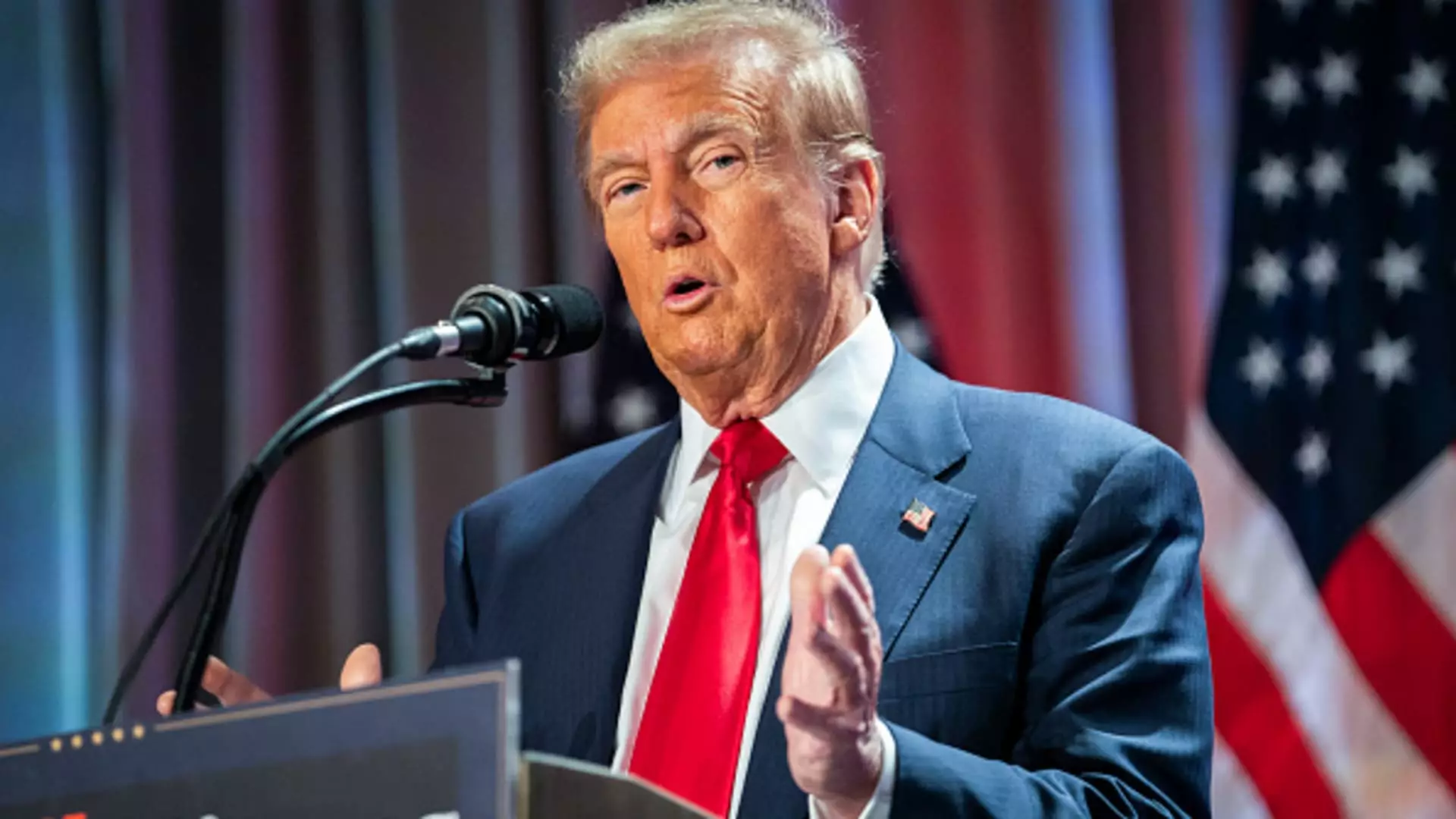In the wake of Donald Trump’s election as President, investors and financial analysts are keenly assessing the landscape of American fiscal policy, particularly concerning tariffs and their anticipated impact on inflation rates. John Davi, a leading money manager and CEO of Astoria Portfolio Advisors, has emerged as a notable voice in this discourse, articulating concerns about potential inflationary pressures stemming from a tariff-heavy agenda. His insights highlight the critical need for investors to adopt a discerning approach when making financial decisions in this evolving environment.
Davi emphasizes a tactical shift towards small-cap industrial stocks over large-cap counterparts. His rationale lies in the assumption that smaller domestic companies will benefit more from the expected policy changes, including tax cuts and deregulation aimed at stimulating local growth. The Russell 2000 index, which serves as a benchmark for small-cap stocks, has experienced a boost since the election, reflecting a broader market sentiment that aligns with Davi’s perspective. This trend indicates that investors are increasingly optimistic about the potential for small businesses to thrive under a pro-growth administration.
Moreover, Davi has underscored the significance of maintaining a domestic focus in investment portfolios, with an overarching strategy that leans heavily on U.S. assets. He believes this approach is sound, particularly in the lead-up to the midterm elections, when the political narrative is expected to be largely shaped by the incoming administration’s policies. This perspective revels in the potential of American enterprises to capitalize on favorable legislative conditions, presenting a compelling case for investors to prioritize domestic markets.
Despite the bullish outlook on domestic equities, Davi warns against the perils associated with fixed income investments in light of escalating budget deficits. The increase in the benchmark 10-year Treasury yield — rising approximately 3% since the election — serves as a crucial alert for bondholders. Davi’s skepticism regarding bonds is rooted in the belief that rising yields could undermine bond prices, thus presenting significant risks for those reliant on fixed income for stability and income generation.
Financial professionals advising clients in this climate must navigate these shifting dynamics carefully, weighing the benefits of equities against the looming threats in the bond market. This underscores a larger truth in investing: the landscape can change rapidly, influenced by political shifts and economic decisions that often carry unanticipated consequences.
As the new administration lays out its economic agenda, investors will need to remain vigilant, interpreting shifting market signals and reassessing their strategies. The emphasis on small-cap investments reflects a broader trend towards optimism in American entrepreneurship. However, the variability associated with tariff implementations and economic policy changes creates an air of uncertainty that demands thorough analysis and adaptive strategies.
While the current momentum favors small-cap industrials and domestic investments, the complexities of the economic landscape necessitate a nuanced approach. Investors like Davi illustrate the importance of leveraging informed insights and agility in portfolio management to not only capitalize on present opportunities but also mitigate risks as political narratives unfold. The focus on resilience and strategic adaptation will be crucial in navigating the challenges ahead.

